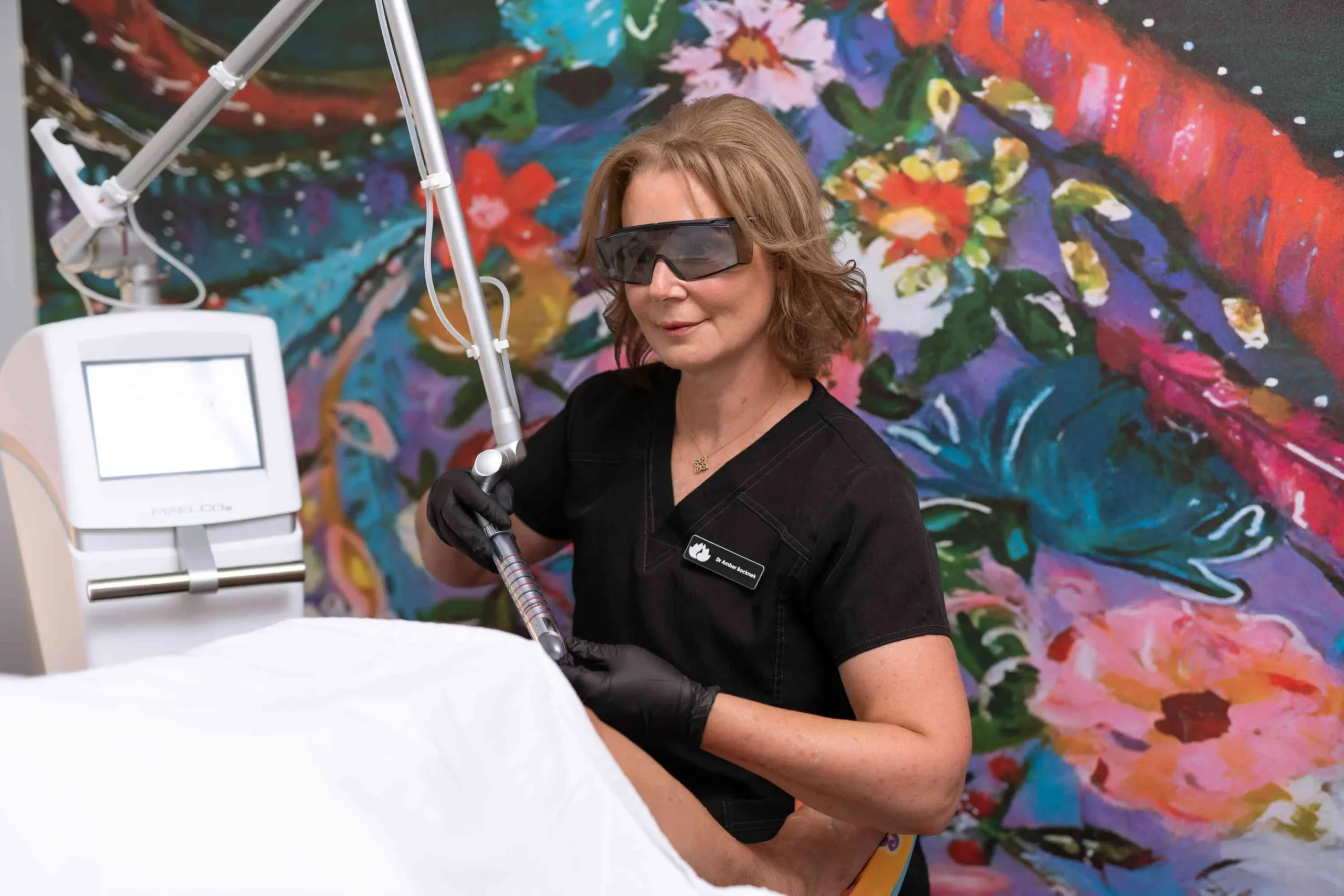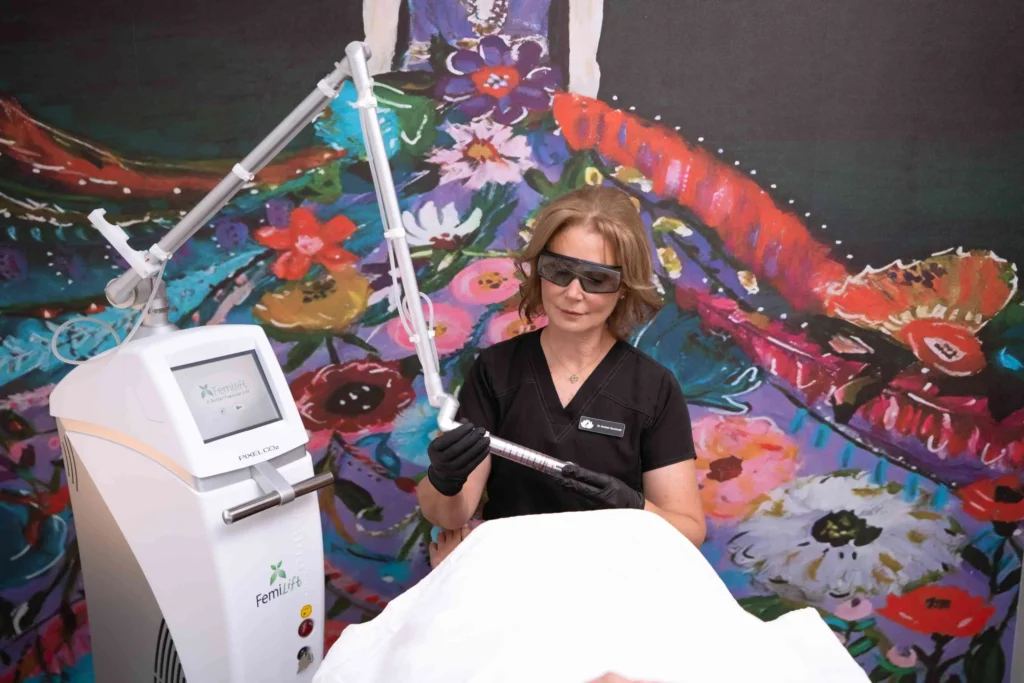
Do you struggle with intimacy issues, dryness, pain, post childbirth laxity, and/or stress urinary incontinence? Are you looking for NON-hormonal treatment options to improve your intimate experience? Femilift Vaginal Rejuvenation might be an option for you!
Femilift Vaginal Rejuvenation is a non-surgical laser-based procedure designed to address various feminine health concerns by promoting tissue regeneration and improving the overall health of the vaginal and vulvar tissues. The treatment utilizes fractional carbon dioxide (CO2) laser technology to stimulate collagen production and enhance blood flow in the vaginal area. Here’s a general overview of the Femilift Vaginal Rejuvenation treatment:

The Femilift Vaginal Rejuvenation procedure involves the insertion of a specialized laser handpiece into the vaginal canal. The fractional CO2 laser is then applied to the targeted tissues, creating micro-injuries that stimulate the production of collagen and promote tissue rejuvenation.
Before undergoing Femilift Vaginal Rejuvenation, individuals typically have a consultation with a qualified healthcare provider. During this consultation, the provider will assess the patient’s medical history, discuss their concerns, and determine if Femilift Vaginal Rejuvenation is an appropriate solution for their needs.
On the day of the procedure, patients are usually advised to avoid using any topical creams or lotions in the vaginal area.
The Femilift Vaginal Rejuvenation procedure involves the insertion of a specialized laser handpiece into the vaginal canal. The fractional CO2 laser is then applied to the targeted tissues, creating micro-injuries that stimulate the production of collagen and promote tissue rejuvenation. The laser energy is delivered in a controlled and precise manner to ensure safety and effectiveness.
The controlled thermal energy from the laser induces collagen remodeling and elastin formation in the vaginal tissues. This process is intended to improve the tone, flexibility, and overall health of the vaginal walls.
A typical Femilift Vaginal Rejuvenation session may take around 10-15 minutes to complete, and patients often undergo a series of sessions for optimal results. The exact number of sessions recommended may vary based on individual needs and the specific goals of the treatment. Most women require 3 initially, then an individual treatment every 1-2 years.
Femilift Vaginal Rejuvenation is considered a minimally invasive procedure, and many individuals can resume most of their normal activities immediately afterward. However, some patients may experience mild discomfort or a sensation of warmth in the treated area for a short period. It’s advisable to avoid sexual activity, tampon use, and certain activities for 3-4 days after a procedure.
Patients may start to notice improvements in vaginal tone, lubrication, and overall comfort in the weeks following the completion of the recommended treatment sessions. The full effects of Femilift Vaginal Rejuvenation may continue to develop over several months as collagen production increases.
Femilift Vaginal Rejuvenation is often sought after by women seeking non-surgical solutions for conditions such as vaginal laxity, dryness, mild urinary incontinence, and sexual dysfunction. As with any medical procedure, it’s important for individuals considering Femilift Vaginal Rejuvenation to consult with a qualified healthcare professional to discuss their specific concerns, expectations, and the potential benefits and risks of the treatment.
While Femilift Vaginal Rejuvenation is generally considered a safe and well-tolerated procedure, as with any medical intervention, there is a potential for complications. It’s essential for individuals considering Femilift Vaginal Rejuvenation to be aware of possible complications and discuss them thoroughly with their healthcare provider. Some potential complications associated with the Femilift Vaginal Rejuvenation procedure may include:
It’s crucial for individuals considering Femilift Vaginal Rejuvenation to choose a qualified and experienced healthcare provider and to thoroughly discuss their medical history, concerns, and expectations during the consultation. This open communication can help mitigate the risk of complications and ensure that the procedure is suitable for the individual’s specific needs. Additionally, adhering to post-procedure care instructions is essential for minimizing the risk of complications and optimizing the healing process.
In our clinic, only our doctor, Dr Amber Bocknek administers these treatments. She is a fully licensed Canadian physician, with her Diploma in Non-Surgical Cosmetic Gynecology from the Canadian Board of Aesthetic Medicine.